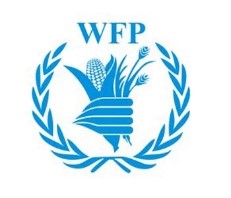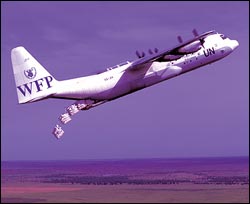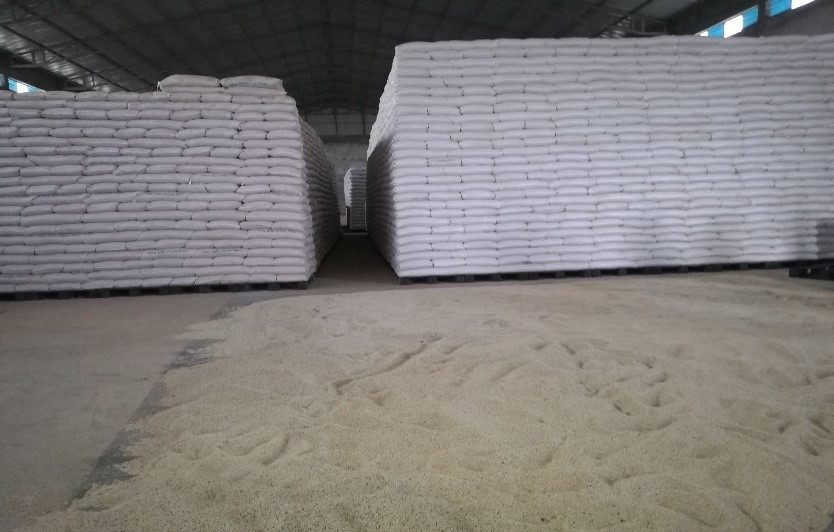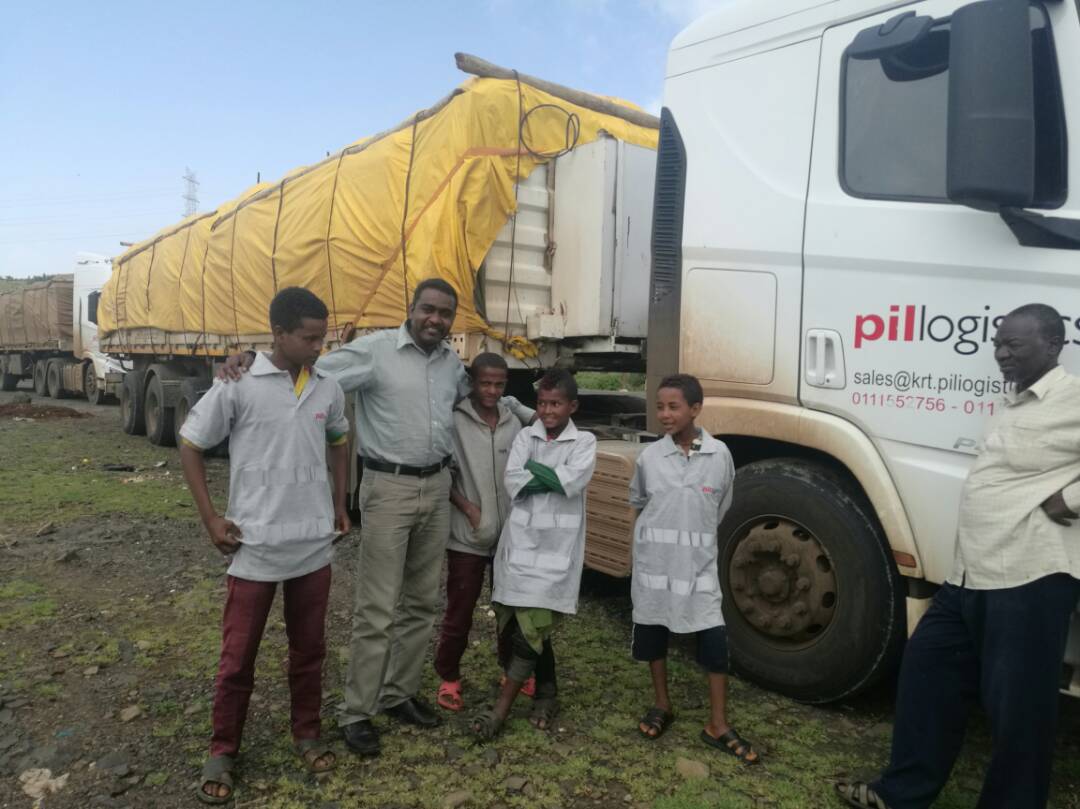 | PIL LOGISTICS AND THE WORLD FOOD PROGRAMME IN SUDAN By Darren Lister – General Manager PIL Logistics (Sudan) |  |
| Since 1963 the WFP has had a presence in Sudan delivering vital food and aid to those most in need. From their Headquarters in Khartoum, the WFP coordinates the delivery of food and medicine to people in Sudan, South Sudan, Darfur and Ethiopia. These aid packages are dispatched through a number of delivery methods such as transporter vessels and river boats by water, a variety of road-based transportation methods and the use of air drops with cargo planes and helicopters to the remotest regions. | ||
 | The WFP has three main transport categories; the “Primary Routes” are mainly from the sea port in Port Sudan to the main hubs in Kosti, Al Gadaref, El Obied. Secondary Routes are from these hubs to outlying warehouses situated all over the country in places like Al Fashir on the South Sudan Border and the third is the “Tertiary” routes which are deliveries to the most remote and deprived areas. These routes throughout the region reach an estimated 500,000 individuals a month. |
Sudan overview - Sudan remains low in human development, ranking 167 out of 188 countries in the 2015 Human Development Index. After the 2011 South Sudan secession which led to the loss of substantial oil output and fiscal revenue, the economy continues to struggle. Over the years, Sudan has faced several conflicts. Despite two significant peace agreements, fighting is still ongoing in Darfur, South Kordofan and Blue Nile states. This has resulted in massive waves of displacement and restricted movements for humanitarian agencies. The biggest waves of displacement in 2016 were triggered by the conflict in the Jebel Marra area which was ignited in January 2016. Despite continued advocacy efforts, access to affected populations in rebel-held areas of South Kordofan, Blue Nile and Jebel Marra, Darfur, remains a challenge for humanitarian agencies. South Sudan Overview - Independent since 2011, the world’s newest country is also one of its least developed. There are no precise population figures - in 2014, the World Bank estimated there were 11.91 million South Sudanese, four in ten of them aged 14 or younger. South Sudan is overwhelmingly rural with petroleum being the only export industry. Nine in ten households depend on crop farming, livestock, fishing or forestry. Productivity across these sectors is minimal; food insecurity is persistent and exacerbated by conflict and economic crises. | |
Refugee camp – South Sudan | Fighting erupted in December 2013 and spread rapidly from the capital city of Juba. A peace deal signed in August 2015 has yet to be implemented in full. The conflict has uprooted more than 2.3 million people; nearly 1.7 million have been displaced internally, with neighboring countries hosting some 650,000 refugees. |
The Secondary Route – The WFP has a main route from their base in Al Fashir to its warehouses in South Sudan, however in recent months there have been a number of issues affecting this vital lifeline to the people in the South; Government Corruption, Border Closures and Military Fighting and even the weather have led to other options being considered. The WFP took the step of having their aid delivered to their two main bases in Ethiopia; Nazareth and Gambella. These two bases would be fed from their Warehouse in Kosti and from there, the food would be delivered by cargo planes and helicopters to refugee camps in Darfur and South Sudan. It has proved to be a very successful operation and as a result many thousands of lives have been saved. |
PIL LOGISTICS AND THE WFP
PIL Logistics began operating in December of 2015 and by April of the following year, we began working as a subcontractor for another company delivering food aid from Port Sudan to Al Fashir. We were able to transport a total of 350 tons of food aid. In May, this total had doubled to 700 tons.
Operating as a subcontractor was a very good way to earn exposure with the WFP and for them to see how well we were performing as a company. However, the size of our fleet restricted us in terms of what we could provide. After a year of negotiations and various due diligence, coupled with an increased fleet of 30 vehicles and 60 trailers, PIL Logistics was added to their list of preferred carriers and signed an agreement to join them in partnership.

General Manager - Darren Lister Meeting with Mr Lamma Baylissa (WFP Head of Logistics)
In March of 2017, we signed our first contract to deliver food from Port Sudan to El Obied and since then, we have transported nearly 2,000 MTs of product on this route.

PIL Logistics delivered aid to El Obied
PIL Logistics, continues to provide transportation continuously on this primary route and we have garnered a reputation for “on time and in full” deliveries, with further expansion of the fleet planned for 2018, our main goal is to grow our capability for more diverse delivery routes and further increase our revenue.
Ethiopia
In April, the WFP published a tender for deliveries from their Kosti Warehouse to their two sites in Ethiopia. We knew that not many companies would be interested in this route as cross-border deliveries can be notoriously difficult in the region. However, we knew that with our small but dedicated team, we could not only deliver the product on time but could far exceed even our own expectations. We also felt that this would give the staff a new challenge of dealing with other agencies and overcoming the many obstacles that we were sure we would encounter. The contract was to deliver 10,000 MTs of food within a six-month period. PIL Logistics was awarded 2,000 tons of this total and in June we delivered our first batch of 600 tons on a 15 truck convoy.

PIL Vehicles in Ethiopia
At the time of writing this article, PIL Logistics has just delivered a further 800 MTs on a convoy of 20 vehicles and we have a further 600 MTs to complete our order, it is expected that this final delivery will be completed by the end of August.

PIL Logistics trucks just outside Addis Ababa – Ethiopia

Operations Manager – Mohammed Batira with some local children dressed smartly in PIL Logistics Polo Shirts
PIL Logistics is now considered one of the best transport companies within Sudan, our reputation has grown significantly and we are very proud of our work with the WFP. We hope to grow this reputation and solidify our partnership into 2018 and beyond while contributing to a truly worthwhile and honorable cause.

